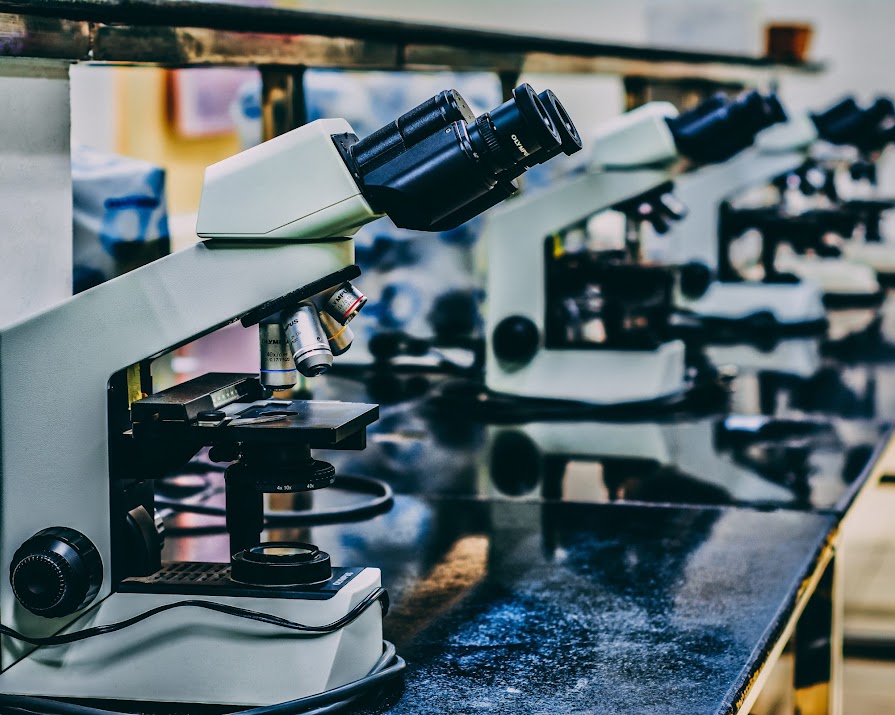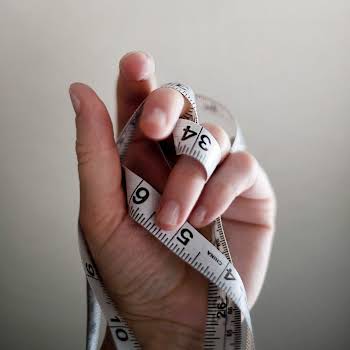
New research shows that weight is likely to be genetically pre-determined
By IMAGE
01st Feb 2019
01st Feb 2019
Every morning I watch BBC News whilst I eat my breakfast. I’d say about three days out of every five, as I’m sat drinking a coffee and enjoying some toast, there’s some scare-mongering story on the sugar tax, on the ‘obesity crisis’ or how we’re all doomed to get fat and die.
One’s weight is much less about whether or not you turn down pudding and more so intrinsically linked to your own individual biology.
As someone who is still recovering from a bad patch of disordered eating, it’s at this time in the morning that, in the interest of self-preservation, I hit mute. My finger was poised on the remote just last week at the same time when a feature on some ‘skinny gene’ research came up. Imagine my surprise, (and piece of toast hanging out of my wide-open mouth), when not only was the research on the fact that our weight is likely to be genetically pre-determined, but also that the main take away from the lead researcher, Professor Sadaf Farooqi, was that we should all be ‘less judgemental about others’ weight’.
Individual biology
The research, which studied the DNA of over 14,000 people in the UK, concluded that there are genetic differences between fat and thin people, meaning one’s weight is much less about whether or not you turn down pudding and more so intrinsically linked to your own individual biology. It’s a notion that scientists have been banging on about since the 80s, an example being research by Gurin and Bennett, who put forward the theory that the body is genetically engineered to stay at a set weight. They argued that the weight set points varies from person to person and that individuals all have their own set point range of between 10-20 pounds.
Related: I’m fat and pregnant, and finding maternity clothes is next to impossible
Whilst I was so refreshed by Professor Farooqi’s plea not to be so quick to criticise fat people, there are a few more things that I hope we can take from the latest ‘skinny genes’ research. I’ve all the scientific qualifications of Mr Blobby and haven’t been near a Bunsen burner since 2009, but I really do think these breakthroughs in the scientific community could lead to having a profound effect on society.
First and foremost, I hope that this new research, which proves that there are differences in the DNA of fat and thin people finally helps us, as a society, to understand that body diversity exists. We’re not all engineered to look the same. We’re all built from different DNA. We’re not all meant to look like we’ve just been voted off of Love Island. Even if we all ate the same diet and did the same exercise, we would all still look different, and I think that these new findings will hammer home the fact that we’re not all built to be thin.
We live in a horribly fatphobic society, where we’re taught that fat is the worst thing a person could be and where fat people aren’t granted the same respect as thin people in many aspects of life
I hope too that research like this, research that, as Professor Farooqi says, demonstrates “we have far less control over our weight than we might wish to think”, could aid in quashing the idea that fat people are just thin people who aren’t trying hard enough. We live in a horribly fatphobic society, where we’re taught that fat is the worst thing a person could be and where fat people aren’t granted the same respect as thin people in many aspects of life: fat people are often misdiagnosed in medical settings, any and all symptoms chalked down to just being fat, many clothing retailers don’t cater to fat people, and research has shown that nearly half of British employers are unlikely to hire fat applicants.
Respect
I’m not a fat person, but I still flinch when people will have a chocolate Digestive and berate themselves as being ‘such a fatty’.
On a micro, day-to-day level, imagine the slights that fat people face just in seemingly neutral settings. I’m not a fat person, but I still flinch when people will have a chocolate Digestive and berate themselves as being ‘such a fatty’. Perhaps research findings from ‘skinny genes’ study finally wakes us up to the fact that fatness is not a symptom of laziness or a lack of willpower, and has no effect on who we are as people.
In acknowledging the fact that our DNA determines what we’ll weigh, I hope too that we can advance in not only accepting the bodies of fat people and to give them the respect they deserve, but also that it helps us all accept our own bodies as they are, knowing that the size of our jeans is probably already written in our genes. Once we come to accept the fact that our body has a set weight at which it functions optimally, we might get better at letting go of the futile attempt to control our weight through restrictive diets and punishing exercise regimes, and just try to look after ourselves, scales aside.























